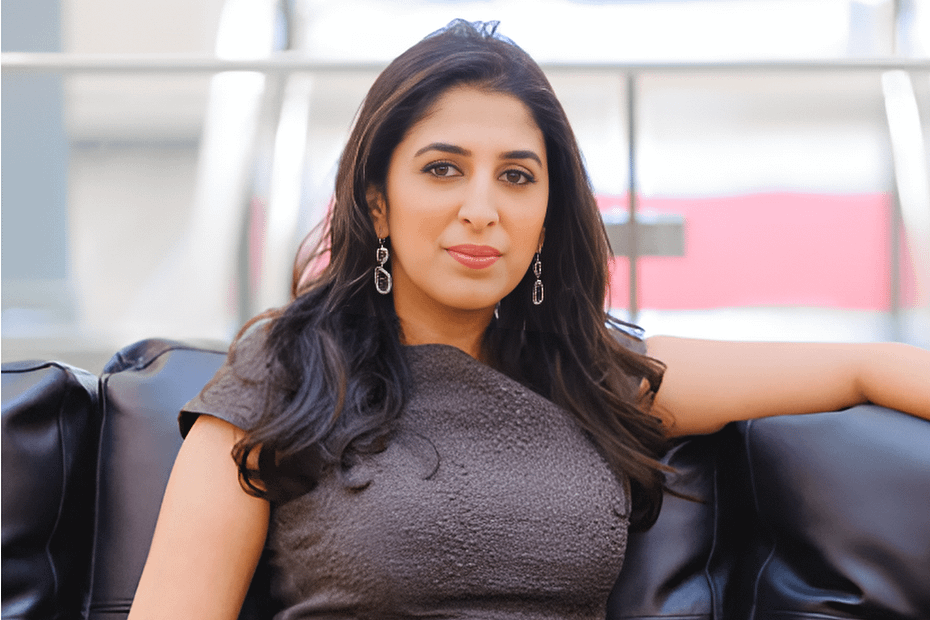At just 13, Surbhi Sarna experienced a health scare that would later inspire a revolution in ovarian cancer detection. Working on a school assignment in her bedroom, she suddenly felt an intense pain in her side so severe that she blacked out. After being rushed to the hospital, doctors diagnosed her with a complex ovarian cyst. While the cyst wasn’t cancerous, the experience left a profound mark on Sarna and sowed the seeds of what would become a game-changing startup for women’s health.
Fast forward nearly two decades, and Sarna is now the 32-year-old founder of nVision Medical, a company she built to develop a device capable of detecting ovarian cancer early. nVision, based in San Bruno, California, raised $17 million in venture capital and gained approval from the U.S. Food and Drug Administration (FDA) for its revolutionary device. While the device isn’t yet available for sale, it holds the promise of addressing a massive unmet need in cancer diagnostics.
nVision’s breakthrough didn’t go unnoticed. Boston Scientific, a global leader in medical device manufacturing, has acquired the company for $150 million upfront, with the potential for an additional $125 million in payouts if clinical and commercial milestones are achieved over the next four years. This acquisition positions nVision’s technology as a significant player in the market for cancer diagnostics, which Boston Scientific executive vice president David Pierce estimates could be worth between $500 million to $2 billion annually.
Turning Pain into Purpose
Sarna, the daughter of Indian immigrants, didn’t start nVision out of a desire to become an entrepreneur or CEO. Her mother, a Ph.D. in Hindi literature, stayed home to raise her children, while her father worked in the tech startup world as an engineer. After her teenage health crisis, Sarna became acutely aware of the gaps in ovarian cancer diagnostics. She founded nVision in 2009, straight out of college, determined to develop better detection tools for ovarian cancer.
The journey wasn’t easy. In a male-dominated field, Sarna often found herself facing skepticism, particularly from male venture capitalists who saw ovarian cancer as a “women’s issue.” Yet, after a year and a half of relentless effort, Sarna raised $250,000 in seed funding. Her biggest supporter was Darshana Zaveri, a partner at Catalyst Health Ventures. This initial investment allowed Sarna to hire an engineer and develop the technology that would become nVision’s flagship product.
The challenge was immense. To detect ovarian cancer, the team needed to collect cells from the Fallopian tubes, which are delicate, narrow structures. Traditional methods of inserting a catheter risked damaging the tissue. Sarna’s team developed a balloon catheter that could safely navigate the tubes, inflate, and collect cells on its surface. Initial studies with 80 women demonstrated that the device could safely enter the tubes and retrieve the necessary cells. A larger study, which compared the results to pathology reports on women having their ovaries removed, showed the device had high sensitivity and specificity for detecting cancer.
A Game-Changing Acquisition
As nVision’s technology advanced, interest from investors grew. Astia Angels and Michigan’s Arboretum Ventures backed the company, leading a $12 million Series B funding round. Sarna first encountered Boston Scientific at a medical conference in Las Vegas, where their enthusiasm for her technology was immediate and infectious. A series of meetings followed, culminating in Boston Scientific’s decision to acquire nVision.
Sarna’s passion for the project never wavered. She was in no hurry to sell, with half of her Series B funding still untouched. But the partnership with Boston Scientific felt right, both to her and to her team. “You know when someone just really gets something and understands it right away?” she recalled of her meetings with Boston Scientific.
To celebrate the deal, members of Boston Scientific’s team flew across the country to dine with Sarna at an award-winning San Francisco restaurant, Octavia. They spent six hours discussing the future of nVision over steak and deviled eggs. Sarna’s husband, an entrepreneur himself, marveled at how long they could talk about work.
A Bright Future for Women’s Health
While the acquisition marks a significant milestone for Sarna and nVision, the work is far from over. The nVision device still faces the challenge of gaining widespread acceptance among women and doctors. Boston Scientific plans a larger, 120-patient study to further validate the device. Sarna, ever committed to the cause, remains a strong advocate for the technology, helping Boston Scientific navigate the complex landscape of cancer diagnostics.
“We’re really excited about this acquisition,” said Pierce. “The diagnosis of ovarian cancer is a massive unmet need in this space.” He describes Sarna as “very passionate, very bright, very driven” and looks forward to continuing their collaboration.
Sarna’s story is one of resilience and purpose, showing how a personal health scare can lead to a transformative innovation. With Boston Scientific now backing her vision, Sarna is well-positioned to fulfill her mission of giving women a better option for early ovarian cancer detection.
As Sarna reflects on her journey, she remains focused on what matters most—making a difference in women’s lives. “I didn’t start this company to be an entrepreneur or a CEO,” she said. “Those were all necessary things that I needed to do to get this product to where it needed to go. Now, this is the best place for me to be in order to keep seeing that happen.”
Inspiration/Resources from – forbes, ycombinator

